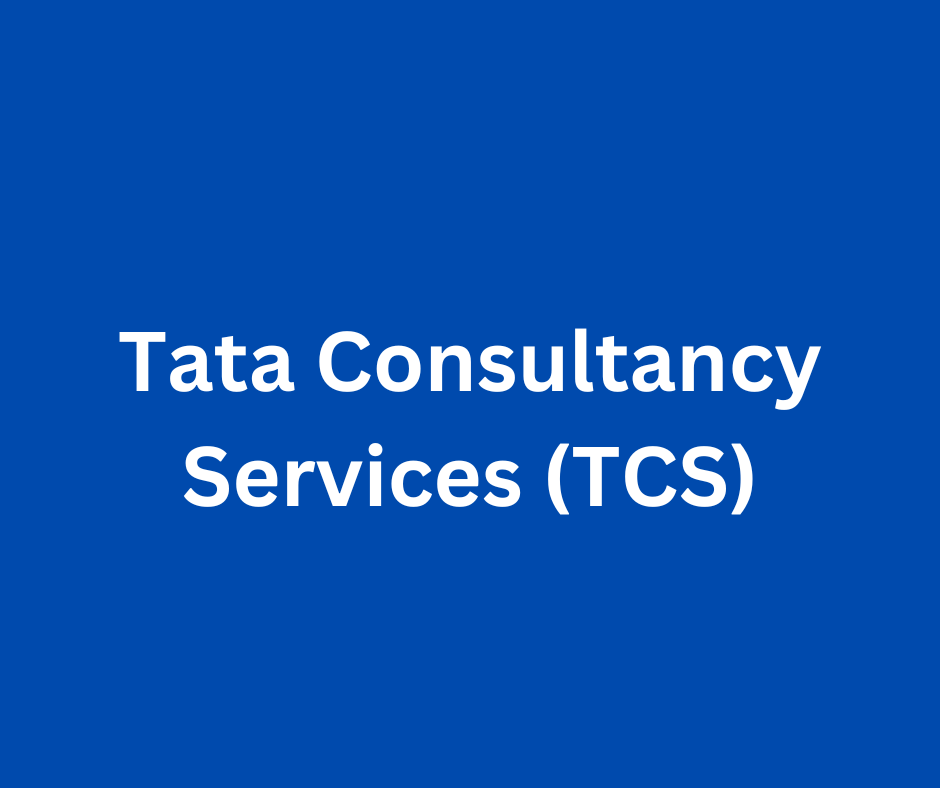Tata Consultancy Services or the TCS IT Company is a giant multinational Company providing consultancy services and multinational information technology services. The headquarters of this was initially centered in Mumbai, Maharashtra, India, and has now taken to expanding all over the globe. There are now 149 functional units operating across 46 nations, with alliances and joint ventures with several renowned firms.
This article will take a detailed look at how this company has evolved over the years. Moreover, we will focus on the various aspects of TCS to better understand its overall growth since its inception.
The current stand of TCS IT Company
Presently, the TCS IT Company stands as the second biggest Indian Company and is also among the top list of the most valuable IT service brands internationally. Several rankings and awards have also proved this. The firm tends to be growing exponentially by big-scale collaborations and projects to date. The TCS Careers India has broken several records and limits in this sector over several decades. This makes it one of the most inspiring success stories to exist.
A brief history of TCS IT Company
Tata Consultancy Services is a member of the Tata group. The Tata group remains one of India’s biggest and oldest operating groups. Visibly, the firm keeps growing with new projects and alliances with every passing day.
The Tata Group
Jamshedji Tata founded the Tata group with the intent to develop trade and business. The main goals in his mind then were to set up:
- An iron and steel Company
- Unique hotels
- Learning institutions
- A hydroelectric plant
All of these goals were achieved within a few decades, under the chairmanship of Dorabji Tata and JRD Tata, who followed as predecessors. Besides, many other successful projects also accompanied this along the way.
Subsidiaries of Tata Group
The Tata group has subsidiaries that cover a wide range of joint ventures; a few of the popular and important ones are as follows:
- Tata Chemicals in association with Rallis India Limited, Brunner Mond, and British salt.
- Tata Communications, a communication company, involving collaborations with VSNL International Canada, Tata Communications Payment Solutions Limited.
- Trent, a retail chain inclusive of Westside, Star Bazaar, Landmark Bookstores, Zudio, and Zara.
- Tata Consultancy Services (TCS IT Company) is Asia’s largest IT company and the world’s largest software and services company.
- Tata Consumer Products, which includes Tata coffee, Tetley, Tata salty, and a joint venture with Starbucks.
- Voltas a home appliances company
- Tata Digital which includes Bigbasket, Tata 1mg, etc.
- Tata Elxsi is a product design and technology company.
- Titan Company is a joint venture luxury products company formed with Tamil Nadu Development Corporation.
- Tata Motors is India’s largest automobile company and 5th largest globally. It has a market share of 45.1%. It holds joint ventures with many leading automobile companies from various countries. The major ones are Jaguar Land Rover, Fiat, Daewoo, Hispano, Hitachi, and Marcopolo.
- Tata Power, India’s largest private-sector generator of electricity comprising of Tata Power Solar and Western Electricity Supply Company of Odisha
- Indian Hotels Company Ltd. which includes Taj hotels, Vivanta, and Ginger.
- Tata Play is a home service company in alliance with Temasek Holdings and Walt Disney.
- Tata Steel, the second-largest steel producer in India and Europe, with Tata Steel Europe, Tata Steel BSL, Tata Bearings, Tata Sponge Iron, Tata Tinplate, Tata Metaliks, Tata Pigment, Tata Colours, and Junction.
- Also, Tata Commercial Industries
- Tata Capital financial services and wealth management
- Tata Airlines, inclusive of Air India, Air Asia, Vistara, Taj Air.
- Lastly, Tata Investment Corp
Initial growth of TCS
The TCS IT Company came into existence in the year 1968, with its headquarters in Mumbai, Maharashtra, India. The company’s initial name in 1968 was ‘Tata Computer Systems,’ and it was taking up contracts, including administrative aids to their sister companies like TISCO. With time, they started helping out bigger parties like the Central Bank of India and Unit Trust of India.
The establishment of the Tata Research Development and Design Centre in Pune was a major milestone in the growth of TCS. It was the first center in India completely dedicated to software research and development. Following its development in 1980, TCS IT Company developed ̧many other similar projects along with partnerships with leading international software corporations.
Revenue growth of TCS IT Company
With a steady progression, the firm’s revenue grew exponentially to reach its current market cap of $170 billion. This was a direct reflection of the hard work and smart decisions made by all involved professionals worldwide, working from several locations. One of the most important contributors to the growth of TCS is Ratan Tata.
Over the following years, the TCS group continued making partnerships with leading groups like Aurus. Many setups like the TCS Omnistore, which allowed for unique unified commerce, were brought into the picture with these collaborations. Tata also remains one of the highest recruiting firms in India, hiring over 43,000.
Ratan Tata
Ratan Tata was the chairman of the Tata group from 1900 to 2012. He is an alumnus of the highly acclaimed Cornell University College of Architecture and the Harvard Business School. The contributions of Ratan Tata to the Tata group are numerous; a few very significant ones remain the acquisition of Corus, Jaguar Land Rover, and Tetley, along with his contributions to the development of the TCS IT Company.
Early life
Ratan Tata was born on 28 December 1937 in Bombay or present-day Mumbai. Upon separation of his parents, Naval and Sunoo, in 1948, when he was 10 years old, he was raised by the widow of Sir Ratanji Tata.
He finished his schooling mostly from Mumbai, with a few final years at Shimla, and finally graduated from Riverdale Country School, New York, in 1955. He secured an architectural degree from Cornell University in 1959, after which he entered the Advanced Management Program at Harvard Business School.
The new leader
J R D Tata named him as the successor for Tata group in 1991 following his resignation. With a young and fresh outlook of his own, Ratan Tata took it upon himself to recruit new talent with priority given to innovation rather than plain experience. He made major tweaks in the administrative process and brought everything to place by making all the responsibilities streamlined neatly.
Contributions
Ratan Tata brought an overwhelming increase in the firm’s revenue within a very short period. This was mostly a direct result of the improvements he implemented in the TCS IT Company and how he used their technological help to boost other services within the group. As a result, along with the international commodities that the group took over under his leadership, Tata became an entire global business. Another noteworthy contribution of Ratan Tata was the concept of the Tata Nano, which broke the ideals of price points.
A leading philanthropist
As a staunch supporter of education and development, he initiated many of the supportive programs and research facilities that are now available in their institutes. The Tata group is also well known for its contribution to charities and scholarship funds. They were all developed under the leadership of Ratan Tata. He is also a member of the Harvard Business School India Advisory Board.
These donations and endowments are carried out by varying sections of the group, mainly or under the leadership of the Tata educational and developmental trust. Besides, they also support upcoming talent and innovative solutions by providing grants. A major contribution of the TCS IT Company was the donation of 35 million to Carnegie Mellon University for the construction of the TCS hall.
Honours and awards
Ratan Tata was awarded the Padma Bhushan award in 2000 and the Padma Vibhushan award in 2008, considered the second and third highest civilian awards in India. Apart from that, his list of awards and fellowships is countless.
Locations
The TCS IT Company currently holds 50 subsidiaries functioning in 46 countries, spread out to cover different features and aspects of the job. There are multiple units and sectors in which they operate. A few important ones are described below.
TCS Business processing services (BPS)
It houses over 45,000 employees providing services to over 225 million customers in 11 countries. Evidently, TCS BPS is the third-largest Indian IT outsourcing Company, with revenues that make up about 12-13% of the total revenue of TCS.
Tata Research Development And Design Centre (TRDDC)
This was the first software research center in India, established by TCS in Pune in the year 1981. This setup covers multiple aspects of research, including software engineering, process engineering, and systems. The research carried out in these facilities has helped in the development of many significantly helpful software like MasterCraft, Sujal (Tata Swach), and many more.
Innovation in TCS IT Company
TCS came up with an innovation network comprising innovation labs, venture capitalists, university research departments, and start-up alliances. Its inception goes to the year 2007 with included partners from renowned positions in the fields of technology, academic institutions, and capitalism.
Major Subsidiaries of TCS IT Company
TCS serves as the parent Company for several setups across the globe, which form an extensive list. A few of the major subsidiaries which provide significant contributions to the firm include the following.
TCS China
It is a WFOE (Wholly foreign-owned enterprise) whose establishment goes all the way back to 2002. Back then, it merged as a joint venture between the National Software Export base, TCS, and Microsoft.
TRDDC
As explained earlier, the research and development aspect of the TCS IT Company group is a major contributor to the overall revenue.
CMC Limited
It was a firm providing IT services, consulting, and software services that the Government of India initially owned. Finally, Tata Group and TCS bought it in the year 2001.
Computational Research Laboratories
This is a unit present under every branch of TCS itself.
Employment at TCS IT Company
The Tata Consultancy Services remains one of the highest private-sector employers in the country and the fourth largest among listed Indian companies. As of 2021, the employment count of TCS Careers India has well exceeded 500,000, with about 22,000 being non-Indian nationals. The recruiters at Tata pay extra attention to finding new talent and take extensive measures to solve unemployment problems. As part of their concern for innovation and fresh ideologies, their average employee age is 28. They express highly promising statistical data, with their employee utilization rates at 82%.
With such an extensive workforce, the TCS IT Company has been named the world’s third-largest IT employer, right after IBM and HP.
Reasons for their growth
Apart from their hard work and progress, the main reasons for their exponential growth and development are their importance to innovation, customer service, and etiquette. The TCS IT Company continues trying out its business endeavors in different sectors and on a wide variety of platforms. Therefore, as it continues to be successful in almost all of them, it still dominates this field for several decades altogether.
The employees at Tata work as a flock, complementing each other every step of the way. This is very evident from how they use their solutions to improve their work. They also implement self-produced software and technological tools in their subsidiaries, thereby improving self-sufficiency and smooth functioning.
Conclusion
The story of TCS IT Company, Tata Group, and Ratan Tata as an individual are all truly inspiring. So, the key takeaways from this information would be that with the right direction of thinking, good decision making, and planning, anyone can elevate their position in the world. There is no such thing as a basic requirement as far as you are dedicated to putting in the work. The firm has proved it several times with the repeated achievements and improvements they keep putting forth with every passing day.




